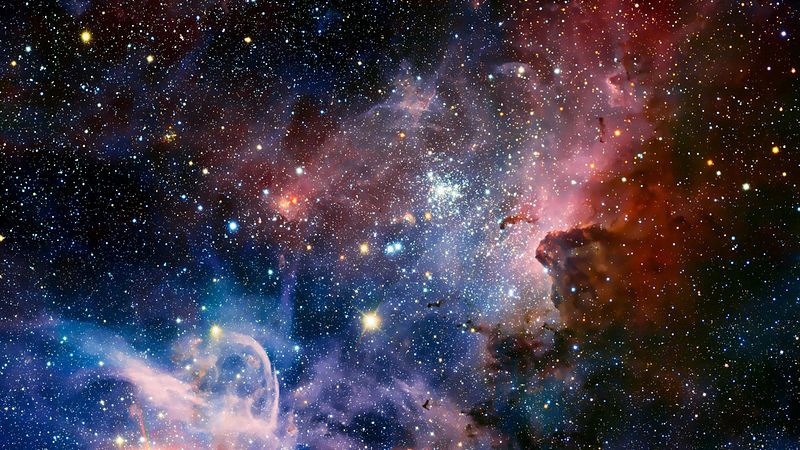Key Takeaways
- Space refers to the void between celestial objects, while the universe includes all celestial objects as well as space.
- Space does not include celestial objects, while the Universe encompasses planets, stars, galaxies, and other celestial bodies.
- Space is a part of the universe, which includes all physical matter and energy, solar systems, planets, galaxies, and all contents of space.
Key Difference – Space vs Universe
Although the terms space and universe are often used interchangeably, there is a distinct difference between the two. Space typically refers to the void that exists between celestial objects, while the universe refers to all celestial objects as well as space. Thus, the key difference between space and universe is the inclusion of celestial objects.
What is Space?
Space, also known as outer space, is the void that exists between celestial bodies, including planet Earth. It consists of a hard vacuum comprising a low density of particles, mainly a plasma of hydrogen and helium. It also includes magnetic fields, electromagnetic radiation, neutrinos, dust, and cosmic rays.
Intergalactic space takes up most of the volume of the Universe. In most galaxies, 90% of the mass is in an unknown form called dark matter, which interacts with other matter through gravitational forces.
The space near Earth is classified into several astronomical categories or standards. It is generally accepted that space begins at the Kármán line on Earth.
Geospace is the region of outer space near our planet, including the upper region of the atmosphere and the magnetosphere. Interplanetary Space is the space around the planets and the Sun of the solar system, with a continuous stream of charged particles from the Sun, called the solar wind, creating a very thin atmosphere. Interstellar Space is the physical space within a galaxy that is not occupied by planetary systems or stars, spreading to the edges of the galaxy and fading into the intergalactic void. Intergalactic Space is the space between galaxies, with cosmic voids between large-scale structures in the universe.
What is Universe?
The universe can be basically defined as everything that exists. It consists of all types of physical matter and energy, solar systems, planets, galaxies, and all contents of space.
A planet is a celestial body such as Earth or Mars, moving in an elliptical orbit around a star. A star is a celestial body that generates light and other radiant energy. A solar system consists of the Sun and all objects, including planets, asteroids, comets, orbiting around it. A galaxy is a group of many stars, along with dark matter, gas, and dust.
Most scientists use the scientific model of the Big Bang theory to explain the universe. The Big Bang theory suggests that the Universe expanded from a very hot, dense phase where all the matter and energy of the Universe was concentrated. Most of the universe is thought to be made of an unknown matter known as dark matter.
What is the difference between Space and Universe?
Space refers to the void that exists between celestial objects, while the universe refers to the entirety of all physical matter and energy, solar systems, planets, galaxies, and all contents of space. Space does not include celestial objects; it includes only the void between them. The universe includes all celestial objects and consists of planets, stars, galaxies, as well as space.
Summary – Space vs Universe
The main difference between space and universe is that space refers to the void between celestial objects, whereas the universe refers to the entirety of all physical matter and energy, solar systems, planets, galaxies, and all contents of space. Thus, it can be surmised that space is a part of the universe.
